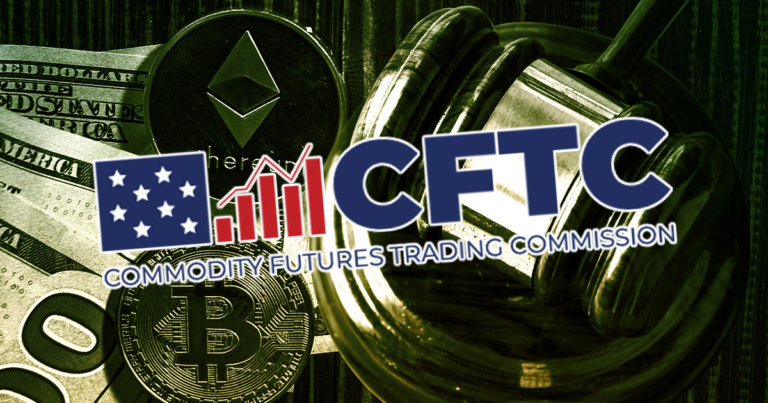 US Senate introduces bill to put CFTC in charge of regulating Bitcoin, Ethereum
US Senate introduces bill to put CFTC in charge of regulating Bitcoin, Ethereum US Senate introduces bill to put CFTC in charge of regulating Bitcoin, Ethereum
The bill would give the CFTC "exclusive jurisdiction" over all cryptocurrencies that fall under the definition of "digital commodities."

Cover art/illustration via CryptoSlate. Image includes combined content which may include AI-generated content.
Leaders of the Senate Agriculture Committee introduced a bill on Aug. 3 to make the Commodity Futures Trading Commission (CFTC) the chief regulator of digital assets that are commodities.
The CFTC currently regulates the derivatives market such as futures and swaps but not underlying commodities.
According to the bill, the CFTC would get “exclusive jurisdiction” over cryptocurrencies that qualify as commodities. The bill proposes to amend the definition of ‘commodity’ in the Commodity Exchange Act to include “digital commodity,” which includes the two largest cryptocurrencies — Bitcoin (BTC) and Ethereum (ETH) — and any other tokens not deemed to be securities.
The CFTC would oversee all digital commodities trades except those where digital assets are used solely for the purpose of buying or selling goods or services, according to the legislation.
The nitty-gritty of the bill
The Digital Commodities Consumer Protection Act of 2022 would make it mandatory for all crypto firms dealing in digital commodities to register with the CFTC. The bill proposes that brokers, custodians, and trading platforms be registered under separate categories, although mining companies would not be required to register.
The bill will also impose an obligation on crypto trading firms to disclose certain information about the digital commodity contracts listed on their platform. This would include the operating structure and system of the commodity, trading volume, and volatility, according to the bill.
The legislation will empower the CFTC to set rules governing margined, leveraged, or financed digital commodity trades along with ensuring fraud prevention. The Commission will also be entrusted with developing rules for consumer protection, like requiring trading firms to disclose conflicts of interest, clearly stating material risks, and setting standards for the marketing of such platforms.
With increasing concern around the energy consumption of digital assets, the CFTC would be required to keep an updated report of how much energy is used in the creation and transfer of the assets, as well as the sources of energy. The Commission would be required to publish the energy consumption report on its website, according to the bill.
While the Securities and Exchange Commission (SEC) has been vying for the role of top regulator of cryptocurrencies, the new bill will allow crypto platforms registered with the CFTC to also register with the securities regulator.
A wish come true for CFTC, even if partially
The Senate Agriculture Committee, which introduced the bill, had asked the CFTC to provide more guidance on digital assets in January.
In a hearing before the same Committee in February, CFTC chairman Rostin Behnam asked lawmakers to introduce laws that would grant the Commission the authority to regulate cash markets for certain cryptocurrencies. While the current bill does not go so far, it is a step in the same direction.
Coin Center, an industry think tank, supported the bill in a blog post but warned that:
“There is a serious risk of overreach and unintended consequences when registration is mandatory rather than optional.”
Coin Center also cautioned that the current definition of “dealer” in the bill is too broad and requires clearer language to ensure that “ordinary buyers and sellers of cryptocurrency are also not swept into a registration regime.”
It is worth noting that the crypto industry has been hankering for clear definitions of digital commodities and digital securities. This would provide clarity to crypto platforms on which agencies — the CFTC or SEC — they need to register with. However, while the new bill defines ‘digital commodities,’ the industry still has to wait for a definition to figure out which digital assets are securities.



























































